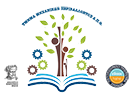Instructor: Konstantinos Christoforidis
Lesson Code: 15ΒΥ2Ν
Semester: 2nd
Weekly teaching hours: 4 Theory / 2 Laboratory courses
ECTS CREDITS: 5
Prerequisites: No
Course offered to Erasmus students: No
Learning Outcomes:
The aim of the course is to familiarize students with the chemistry and physics of the instrumentation/techniques used in chemical analysis, their training in sampling methods, in analysis techniques and processes and in the analysis of environmental samples.
Upon the successful completion of the course, students will have received basic and specialized knowledge in analytical chemistry and will be able to:
• Define principles and methods for qualitative and quantitative analysis
• Selection of the proper technique and methodology for the analysis of specific environmental samples
• Quantitative volumetric analysis
• Data analysis and processing
• Development of scientific reports
General Skills:
The course offers the following theoretical and practical skills:
• Develop protocols for the analysis of environmental samples
• Develop protocols for environmental quality control
• Skills for autonomous work
• Ability to collaborate at team level
• Development of scientific and technical reports
• Risk assessment analysis
• Design and application of protocols including non-destructive control methods for environmental quality control
• Research in chemical analysis
• Design and perform of chemical studies and research
• Conduct physicochemical analysis
• Promoting free, creative and inductive thinking
• Ability to search and analyze data and information using the necessary technologies
Course Content:
1. Environmental samples (solid, gas, liquid); Samples: Concentration – Expressions – Calculations. General methods for qualitative and quantitative analysis
2. Sampling and sample processing
3. Statistical data processing
4. Volumetric method: Sedimentation – Complexation – Oxidation
5. Principles of spectroscopy. Beer-Lambert Law. Its applications in molecular spectroscopy
6. Ultraviolet-visible spectroscopy, infrared spectroscopy, Raman spectroscopy
7. Atomic Absorption Spectroscopy
8. Analytical Methods with X-rays
9. Gas Chromatography
10. Liquid Chromatography
11. Mass spectroscopy
12. Ion Chromatography
13. Techniques to study solid samples
14. Advanced analytical techniques
Suggested Bibliography:
1. Quantitative chemical analysis (HARRIS DANIEL C., ISBN 978-960-524-281-7)
2. Quantitative chemical analysis (Voulgaropoulos, Zachariadis, Stratis, Anthemidid, ISBN 978-960-456-292-3)
3. Instrumental environmental analysis (Deligiannakis, Chela, Konstantinou, ISBN 978-960-418-233-6)
4. Analytical Chemistry (Themelis, Zotou, ISBN: 978-960-456-484-2)


